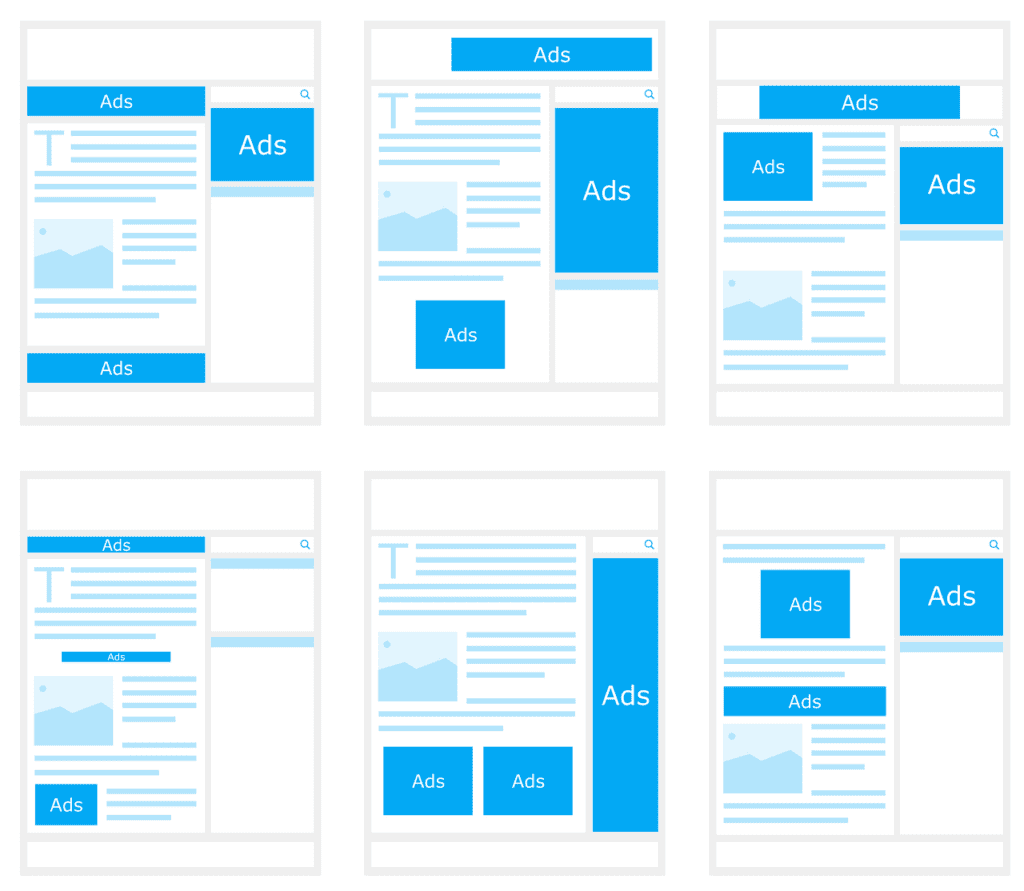Having a WordPress website gives you access to plenty of revenue-generating prospects in the broad digital realm. Whether you’re a content developer, an experienced blogger, or an e-commerce enthusiast, there are a number of strategies you may use to make your WordPress website profitable. We’ll look at a few tried-and-true strategies in this tutorial to help you maximize the revenue from your WordPress website.
Quality Content is King in WordPress
Quality content is one of the main components of a site that succeeds. Publish interesting, educational, and timely articles regularly to draw in and keep readers. Fresh and worthwhile material is rewarded by search engines, which raises the visibility and revenue potential of your online business. Quality content refers to material that is informative, engaging, and valuable to its audience. Here are the key characteristics of quality content:
- Relevance: It addresses the needs, interests, and problems of the target audience.
- Accuracy: It is well-researched, factually correct, and up-to-date.
- Originality: It offers a unique perspective or new information that is not readily available elsewhere.
- Engagement: It captivates the reader’s or viewer’s attention through compelling writing, visuals, or multimedia elements.
- Clarity: It is well-structured, easy to understand, and free from jargon or unnecessary complexity.
- SEO-Friendly: It is optimized for search engines with relevant keywords, but without sacrificing readability and user experience.
Monetize with Advertisements

Ad networks such as Google AdSense can be used to show customized advertisements on your website. You can create a consistent revenue stream by placing your ads strategically and catering to your audience. To keep the ratio of advertisements to content in check, keep the user experience in mind.
Affiliate Marketing
Use affiliate marketing programs to your advantage by endorsing niche-related goods and services. By including affiliate links in your writing, you can profit from each sale or lead that is brought about by your recommendation. For best results, select affiliates who share the interests of your audience. Affiliates earn commissions based on the agreed-upon metric, such as sales, clicks, or leads. Some examples are given below:
- Merchants: Businesses that create and sell products or services.
- Affiliates: Individuals or companies that promote the merchant’s products to their audience.
- Affiliate Networks: Platforms that connect merchants and affiliates, often providing tracking, reporting, and payment services.
- Consumers: The audience or customers who make purchases through the affiliate’s promotional efforts.
- Commission Structure: The payment model, can be pay-per-sale (PPS), pay-per-click (PPC), or pay-per-lead (PPL).
Sell Digital Products

Create and market digital goods like ebooks, online courses, and downloadable materials from your portfolio. With the help of platforms like WooCommerce, creating an online store is simple and you can profit from your skills and creativity. Some of the examples are:
- E-books: Digital versions of books that can be read on e-readers, tablets, or computers.
- Online Courses: Educational programs delivered through video, text, and interactive content.
- Software and Apps: Programs and applications for computers and mobile devices.
- Digital Art and Music: Creative works like illustrations, designs, music tracks, and sound effects.
- Membership Sites: Websites offering exclusive content, resources, or services to subscribers.
- Templates and Tools: Pre-designed resources like website themes, graphic design templates, and productivity tools.
Membership and Subscription Models
Offer members-only access to a membership area or premium content on your WordPress website. To encourage users to become paid members, provide them with access to special articles, tutorials, or other helpful materials. Both recurrent revenue and a sense of community are fostered by this strategy.
Freelance Services
By directly selling freelance services through your website, you may highlight your abilities and experience. Whether you provide writing, graphic design, web development, or consultancy, make a page specifically for your offerings to draw in customers. Some common freelance services include:
- Writing and Editing: Content creation, copywriting, proofreading, and editorial services.
- Graphic Design: Designing logos, branding materials, websites, and marketing collateral.
- Web Development: Building and maintaining websites and applications.
- Digital Marketing: SEO, social media management, email marketing, and PPC advertising.
- Consulting: Providing expert advice in fields like business, finance, and technology.
- Photography and Videography: Capturing and editing visual content for various purposes.
Sponsored Content
Partner with companies and brands in your industry to explore the potential for sponsored content. For a fee, publish evaluations, guides, or articles that highlight their goods or services. Make sure your audience is aware of any sponsored material by making it obvious. Key characteristics of sponsored content includes:
- Native Format: It matches the style, tone, and format of the surrounding non-promotional content, making it less intrusive.
- Value-Driven: It provides useful, entertaining, or informative content that engages the audience, such as articles, videos, infographics, or social media posts.
- Transparency: It is typically labeled as sponsored or branded content to maintain transparency and trust with the audience.
- Collaborative: It involves close collaboration between the sponsor and the content creator to ensure alignment with both the brand’s goals and the platform’s audience preferences.
ALSO READ
5 Best Plugins to Improve Your Website Speed | Improve Site Engagement and User Experience
Online Courses and Webinars

Make courses and sell them, or hold webinars to capitalize on the increasing demand for online learning. Install plugins such as LearnDash or Zoom to streamline the distribution of insightful content and establish your leadership in the industry. Online courses are offered in a variety of formats, such as video lectures, engaging modules, examinations, and discussion forums, and can range in length from quick, independent tutorials to extensive degree programs.
- Flexibility: Learners can study at their own pace and schedule, making it easier to balance education with work and personal commitments.
- Accessibility: Courses can be accessed from any location with an internet connection, breaking down geographical barriers.
- Variety: A wide range of subjects and disciplines are available, allowing learners to find courses that match their interests and career goals.
- Cost-Effectiveness: Many online courses are more affordable than traditional in-person classes, and some are even offered for free.
Optimize for SEO
Use SEO-recommended practices to improve search engine exposure for your online business. Increased traffic from higher visibility increases your potential audience and makes your revenue techniques more effective. Optimizing for Search Engine Optimization (SEO) involves enhancing your website and content to improve its visibility and ranking on search engine results pages (SERPs). This process includes several key strategies:
- Keyword Research: Identifying and using relevant keywords that potential visitors are likely to search for.
- Quality Content: Creating high-quality, informative, and engaging content that addresses the needs and interests of your audience.
- On-Page SEO: Optimizing elements on your website, such as title tags, meta descriptions, header tags, and URL structure.
- Technical SEO: Improving site speed, mobile-friendliness, secure connections (HTTPS), and ensuring that the site is crawlable by search engines.
- Backlinks: Acquiring high-quality backlinks from reputable websites to increase your site’s authority and trustworthiness.
- User Experience: Ensuring a positive user experience with easy navigation, fast loading times, and a clean, responsive design.
Exclusive Content
Offer premium Content that adds significant value to your viewers or Subscribers. Content or information solely available to a certain audience, usually through a membership, subscription, or special access arrangement is referred to as exclusive content. The public cannot access this kind of information, which frequently consists of premium articles, movies, interviews, behind-the-scenes photos, first access to news, and exclusive insights.
Bonus Tip: If looking for the best Hosting Services for setting up a WordPress Site you can use Hostinger Hosting Services. Here’s the link

Conclusion
It takes effort and strategy to turn your website into a platform that makes money. You may give your audience value while developing a complex revenue stream by integrating these several strategies. Keep in mind that success could take some time, so optimize your earning potential, maintain consistency, adjust to market movements, and continuously improve your strategy.
Through consistent and flexible application of these tactics, you may optimize the revenue potential of your WordPress website and cultivate a robust and involved viewership. Remember that it could take some time for success to materialize, so be patient, monitor performance indicators, and adjust your strategy often in response to the changing demands of the market and your audience.

I’m Jason Gill, founder of propeoplemag.com. I’ve graduated in Aviation Management and Avionics Engineering from Superior University, Lahore. I’m certified in WordPress Website Creation and Content Management. I’m a passionate blogger and have seven years of experience in content writing and web development. With a dynamic blend of expertise in web development, blogging, and content creation, I have expertise in dispatch and customer services where I’ve worked with top-tier USA, UK and Canadian based companies located in Pakistan. I’ve also worked as a Student Brand Ambassador for the Cultural Exchange Program at Superior Univeristy and have visited twice for 6 months in Istanbul, Turkey, and Doha, Qatar.

